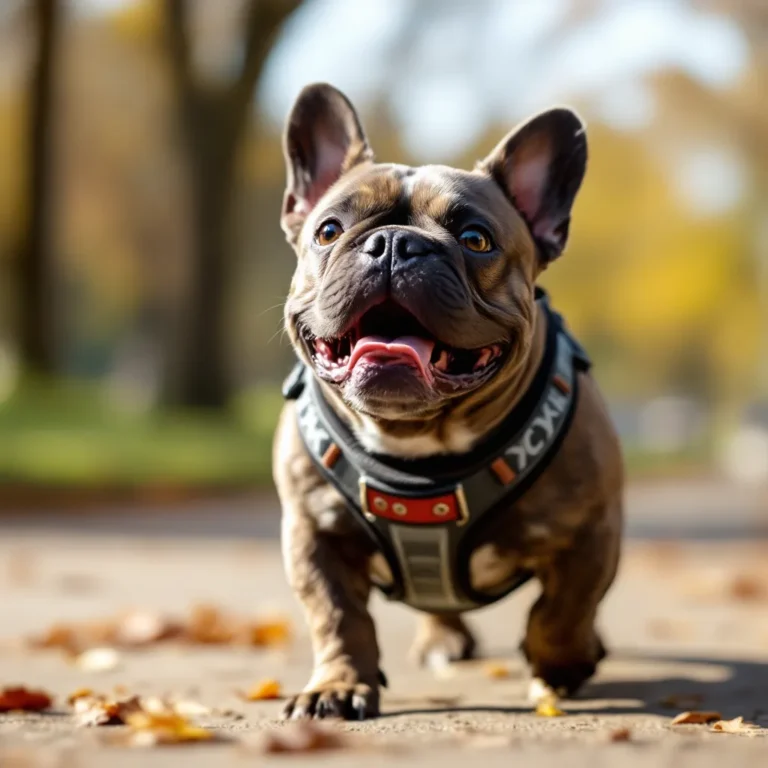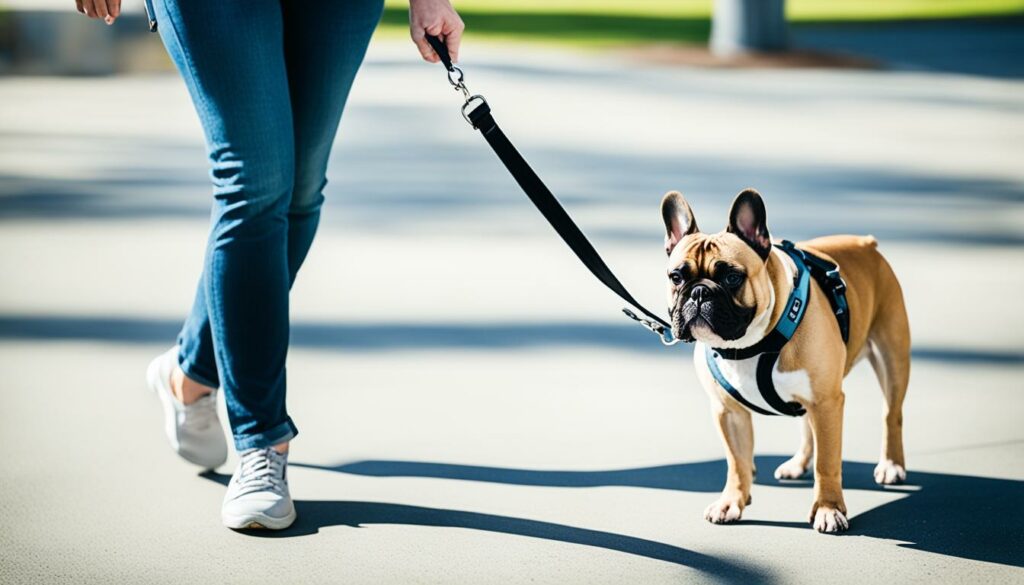Understanding the importance of joint health in French Bulldogs
Joint health plays a crucial role in the overall well-being of French Bulldogs. These small and lively dogs are prone to certain joint issues that can significantly impact their quality of life. Understanding the importance of joint health is vital in ensuring their long-term comfort and mobility.
French Bulldogs have a unique body structure characterized by a compact and muscular build. This structure puts additional stress on their joints, making them more susceptible to joint problems such as hip dysplasia and patellar luxation. By proactively addressing joint health, owners can help prevent or manage these conditions, ensuring that their French Bulldogs lead happy and active lives.
Identifying common joint issues in French Bulldogs
Joint issues are unfortunately quite common in French Bulldogs. One of the most frequently seen problems is hip dysplasia, which is a condition where the hip joint doesn’t develop properly. This can lead to pain, lameness, and difficulty in walking or jumping. Another common joint issue is patellar luxation, which occurs when the kneecap slips out of its normal position. This can cause the dog to suddenly lift their leg while walking or running, and they may also experience intermittent lameness. Additionally, French Bulldogs are prone to developing intervertebral disc disease, which is a condition where the discs between the vertebrae of the spine deteriorate, causing pain, weakness, and even paralysis. It’s important for French Bulldog owners to be aware of these common joint issues so that they can take appropriate measures to prevent and manage them.
In addition to these commonly seen joint issues, French Bulldogs are also susceptible to elbow dysplasia, a condition where the elbow joint doesn’t fit together properly. This can result in front leg lameness, and the dog may show signs of pain when using their legs. French Bulldogs may also suffer from osteoarthritis, a degenerative joint disease that causes inflammation and pain in the joints over time. This can make it difficult for the dog to move around comfortably, and they may experience stiffness and reluctance to engage in physical activity. By recognizing these common joint issues, owners can seek early veterinary intervention and make necessary lifestyle and dietary modifications to ensure their French Bulldogs’ joint health.
Recognizing the signs and symptoms of joint problems

The well-being of our beloved French Bulldogs is of utmost importance to us, and understanding the signs and symptoms of joint problems can help us provide them with the care they need. One common indicator of joint issues is limping or difficulty in walking or running. If you notice your French Bulldog favoring one leg or hesitating to jump or climb stairs, it may be a sign of joint discomfort. Additionally, stiffness and reluctance to engage in physical activities that were once enjoyed might also be a red flag. These signs should not be taken lightly, as they can indicate underlying joint problems that require prompt attention.
Another sign to watch out for is a change in gait or a shift in the way your French Bulldog moves. If you observe your furry friend walking with a more pronounced waddle or a noticeable alteration in their posture, it could suggest joint issues. Prolonged periods of rest or inactivity may further exacerbate these symptoms, making it vital to pay attention to any changes in your French Bulldog’s mobility. While these signs may not always signify joint problems, it is wise to consult a veterinarian if you notice such behavior, as early detection can contribute to better treatment outcomes.
Proper nutrition for maintaining healthy joints
Proper nutrition plays a crucial role in maintaining healthy joints in French Bulldogs. Providing a well-balanced diet that is rich in nutrients is essential for supporting joint health and preventing potential issues. Including high-quality protein sources, such as lean meats or fish, in your dog’s diet can aid in muscle development, which in turn helps to support the joints. Additionally, incorporating foods that are rich in omega-3 fatty acids, like fish oil or flaxseed, can help to reduce inflammation and promote joint flexibility.
Furthermore, it is important to ensure that your French Bulldog maintains a healthy weight to minimize stress on their joints. Excess weight can put unnecessary strain on the joints, leading to increased risk of issues such as arthritis or hip dysplasia. Feeding a portion-controlled diet and avoiding excessive treats can help prevent weight gain and promote overall joint health. Additionally, consulting with a veterinarian to determine the appropriate caloric intake for your dog’s age, size, and activity level can be beneficial in maintaining optimum joint health.
The role of exercise in preventing joint issues

Exercise plays a crucial role in preventing joint issues in French Bulldogs. Regular physical activity helps to strengthen and stabilize the joints, reducing the risk of damage and inflammation. Engaging in appropriate exercise not only promotes flexibility and range of motion but also helps to maintain a healthy weight, preventing excessive strain on the joints.
When it comes to exercise for French Bulldogs, moderation is key. While they are an active breed, their short snouts and compact bodies mean that they are more prone to overheating and exhaustion. It is essential to provide them with exercise that is suitable for their size, breed, and individual needs. Activities such as short walks, controlled playtime, and low-impact exercises can help improve joint health without causing excessive stress or strain.
Creating a suitable exercise routine for French Bulldogs
Regular exercise is essential for maintaining the overall health and well-being of French Bulldogs. However, it is crucial to create a suitable exercise routine that is tailored to their specific needs. French Bulldogs are a brachycephalic breed, meaning they have a shortened skull, which can make breathing more difficult during physical activity. As such, it is important to avoid intense exercise and focus on low-impact activities that still provide them with the necessary exercise.
When determining a suitable exercise routine for your French Bulldog, it is important to consider their age, size, and overall health. Younger French Bulldogs may have more energy and require more exercise, while older dogs may benefit from shorter and less strenuous activities. It is recommended to provide them with daily exercise in the form of short walks, gentle play sessions, or even swimming, as it is a low-impact activity that helps to strengthen their muscles without putting excessive strain on their joints. Always monitor your French Bulldog during exercise and adjust the intensity and duration as needed to prevent any discomfort or overexertion.
• Daily exercise is recommended for French Bulldogs
• Consider the age, size, and overall health of your dog when determining their exercise routine
• Younger dogs may require more exercise than older ones
• Short walks, gentle play sessions, or swimming are suitable low-impact activities for French Bulldogs
• Monitor your dog during exercise to prevent discomfort or overexertion
The significance of weight management for joint health

Obesity is a growing concern among pet owners, and it has a significant impact on joint health in dogs. Maintaining a healthy weight is crucial for French Bulldogs to prevent strain and pressure on their joints. Excess weight puts additional stress on the joints, increasing the risk of developing joint issues such as arthritis and dysplasia. With their small size and compact structure, French Bulldogs are already prone to joint problems, so ensuring they stay at a proper weight becomes even more important.
Weight management involves a combination of a balanced diet and regular exercise. Feeding your French Bulldog a nutritious, portion-controlled diet is essential to prevent excessive weight gain. Avoid feeding them table scraps or high-calorie treats that can contribute to weight gain. Consult with a veterinarian to determine the appropriate amount of food to feed your dog based on their age, size, and activity level. Regular exercise is equally important to keep joints healthy and maintain a healthy weight. Daily walks, gentle play sessions, and interactive games can help keep your French Bulldog active and prevent excessive weight gain.
Providing supplements to support joint health
Supplements can play a valuable role in supporting the joint health of French Bulldogs. One popular supplement is glucosamine, which is believed to aid in cartilage repair and reduce inflammation in the joints. It is often used as a natural remedy for joint problems in dogs. Another commonly used supplement is chondroitin, which helps to maintain the structural integrity of the joints by promoting the production of joint fluid and protecting against cartilage degeneration. Additionally, omega-3 fatty acids, such as those found in fish oil, can provide anti-inflammatory benefits and contribute to overall joint health. Before adding any supplements to your French Bulldog’s diet, it is advisable to consult with a veterinarian to ensure that they are safe and appropriate for your pet’s specific needs.
In addition to supplements, it is important to understand that a balanced and nutritious diet is crucial for maintaining optimal joint health in French Bulldogs. Feeding your dog a high-quality commercial dog food that is specifically formulated to support joint health can provide essential nutrients, such as antioxidants, vitamins, and minerals, which are important for the overall well-being of their joints. Some specialized dog food brands even offer formulas that are specifically tailored to address joint issues. However, it is important to note that while supplements and proper nutrition can contribute to joint health, they should not replace veterinary care or the advice of a professional. It is always recommended to consult with a veterinarian who can provide guidance on the most suitable supplements and diet for your French Bulldog.
Tips for preventing joint injuries in French Bulldogs
French Bulldogs are known for their playful and energetic nature. While this brings joy to their owners, it also puts them at risk of joint injuries. It is essential to take proactive steps to prevent these injuries and ensure the optimal joint health of your furry companion.
Firstly, it is important to be mindful of the surfaces your French Bulldog walks on. Avoid uneven or slippery terrain that could strain or twist their joints. Instead, opt for gentle and safe surfaces such as grass or carpeted areas for exercise and playtime. Additionally, always keep a close eye on your dog’s activities and avoid letting them jump from high places, as this can lead to serious joint injuries. By implementing these precautions, you can significantly reduce the risk of joint injuries for your French Bulldog and promote their overall well-being.
The importance of regular veterinary check-ups for joint health
Regular veterinary check-ups are crucial in maintaining the optimal joint health of French Bulldogs. By scheduling regular check-ups with a trusted veterinarian, owners can ensure that any potential joint issues are identified and addressed early on. During these check-ups, veterinarians will conduct a thorough examination, paying close attention to the joints and assessing for any signs of stiffness, pain, or limited mobility.
The veterinarian may also recommend specific tests, such as X-rays or joint fluid analysis, to further evaluate the overall joint health of the French Bulldog. These tests can help detect any underlying conditions, such as hip dysplasia or arthritis, which may require further treatment or management. Early detection and intervention are key in preventing joint problems from worsening and causing unnecessary discomfort to the dog. Therefore, regular veterinary check-ups play a vital role in ensuring the long-term joint health and overall well-being of French Bulldogs.
Understanding the impact of genetics on joint issues

Genetics play a crucial role in determining the propensity of French Bulldogs to develop joint issues. Just like humans, dogs inherit certain genes from their parents that can either make them more susceptible to joint problems or provide them with a stronger joint structure. While the exact genetics behind joint issues in French Bulldogs are not fully understood, research suggests that certain conditions like hip dysplasia and luxating patella may have a hereditary component.
Breeders have a significant responsibility in minimizing the risk of joint issues in French Bulldogs by selectively breeding dogs with healthier joints. By conducting health screenings and only breeding dogs with superior joint health, breeders can help reduce the chances of passing on genetic predispositions for joint problems. Additionally, responsible breeding practices also involve avoiding breeding dogs with known joint issues, ensuring that only the healthiest individuals contribute to the gene pool. However, while genetics can increase the likelihood of joint problems in French Bulldogs, it is important to note that environmental factors such as diet, exercise, and weight management also play a significant role in maintaining optimal joint health.
Creating a comfortable living environment for French Bulldogs
French Bulldogs, like any other breed, thrive in a comfortable living environment that caters to their specific needs. When it comes to creating a space that promotes their joint health, there are a few key factors to consider. Firstly, providing a soft and supportive bedding is crucial. Dogs spend a significant amount of their time sleeping, so having a comfortable bed that offers adequate cushioning can prevent joint strain and discomfort.
In addition to the bedding, maintaining a moderate temperature in the living environment is important for French Bulldogs’ joint health. Extreme cold or heat can affect their joints and exacerbate any existing conditions. It is recommended to choose an area in the house that is well-insulated and avoids drafty zones. Furthermore, keeping the living space clean and free from clutter will help prevent accidental falls or injuries that can impact their joints.
Long-term care and monitoring for optimal joint health.
Long-term care and monitoring are vital for maintaining optimal joint health in French Bulldogs. As these dogs age, their joints become more susceptible to various issues. Regular check-ups with a veterinarian are crucial as they can detect any changes or abnormalities in the joints early on. These check-ups often involve assessing the dog’s range of motion, looking for signs of discomfort, and possibly conducting X-rays to get a clearer picture of the joint health. By monitoring the joints on a regular basis, potential problems can be identified and addressed promptly, ensuring the dog’s overall well-being.
In addition to regular veterinary check-ups, it is essential to create a comfortable living environment for French Bulldogs to support their joint health in the long run. Providing them with a soft and supportive bed or mat to rest on can greatly alleviate pressure on their joints, particularly during sleep. Other considerations include keeping the living area free from clutter and potential hazards that might lead to joint injuries. By taking these preventive measures and providing a safe and cozy environment, French Bulldogs can enjoy a better quality of life while minimizing the risk of joint issues.
Why is joint health important for French Bulldogs?
Joint health is crucial for French Bulldogs as they are prone to certain joint issues. Maintaining healthy joints helps them stay active, mobile, and free from pain or discomfort.
What are common joint issues that French Bulldogs may face?
French Bulldogs are susceptible to conditions such as hip dysplasia, patellar luxation, and intervertebral disc disease (IVDD), which can affect their joints and overall mobility.
How can I recognize the signs and symptoms of joint problems in my French Bulldog?
Look out for signs like limping, stiffness, difficulty getting up or climbing stairs, reluctance to jump or play, and changes in gait or posture. If you notice any of these, it’s important to consult a veterinarian.
How does proper nutrition contribute to maintaining healthy joints?
Providing a balanced diet with essential nutrients, such as omega-3 fatty acids, glucosamine, and chondroitin, can help support joint health and reduce the risk of joint issues in French Bulldogs.
What role does exercise play in preventing joint issues?
Regular exercise is important for French Bulldogs to strengthen their muscles and maintain joint flexibility. It helps reduce the risk of joint problems and keeps them physically fit.
How can I create a suitable exercise routine for my French Bulldog?
Consult with a veterinarian to determine the appropriate type and duration of exercise for your French Bulldog based on their age, fitness level, and any existing joint issues. It’s important to strike a balance between activity and rest.
Why is weight management significant for joint health in French Bulldogs?
Excess weight puts additional strain on the joints, increasing the risk of joint problems. Maintaining a healthy weight through proper diet and exercise can help alleviate stress on the joints.
Are there any supplements that can support joint health in French Bulldogs?
Yes, there are supplements available that can help support joint health, such as glucosamine, chondroitin, and omega-3 fatty acids. However, it’s essential to consult with a veterinarian before adding any supplements to your dog’s diet.
How can I prevent joint injuries in my French Bulldog?
To prevent joint injuries, avoid activities that put excessive stress on the joints, provide a safe and secure environment, use ramps or stairs instead of letting them jump from heights, and ensure they have proper warm-up and cool-down routines before exercise.
How often should I take my French Bulldog for veterinary check-ups regarding joint health?
Regular veterinary check-ups are important for monitoring joint health. Your veterinarian can assess your French Bulldog’s joints, provide preventive measures, and detect any early signs of joint issues. The frequency of visits may vary based on your dog’s age and overall health.
How does genetics impact joint issues in French Bulldogs?
Genetics play a role in the development of joint issues. French Bulldogs may inherit certain conditions that affect their joints, so it’s important to be aware of their lineage and consult with a veterinarian when considering breeding.
What can I do to create a comfortable living environment for my French Bulldog’s joint health?
Provide a soft and supportive bed, avoid slippery surfaces, use elevated feeding bowls to reduce strain on the neck and joints, and provide regular opportunities for rest and relaxation to promote joint health and comfort.
What long-term care and monitoring should I undertake for optimal joint health in my French Bulldog?
Long-term care includes following a healthy diet, providing regular exercise, maintaining a healthy weight, administering appropriate supplements as recommended by a veterinarian, and scheduling routine check-ups to monitor joint health as your French Bulldog ages.
Hi, I’m Alex! At FrenchyFab.com, I share my expertise and love for French Bulldogs. Dive in for top-notch grooming, nutrition, and health care tips to keep your Frenchie thriving.



